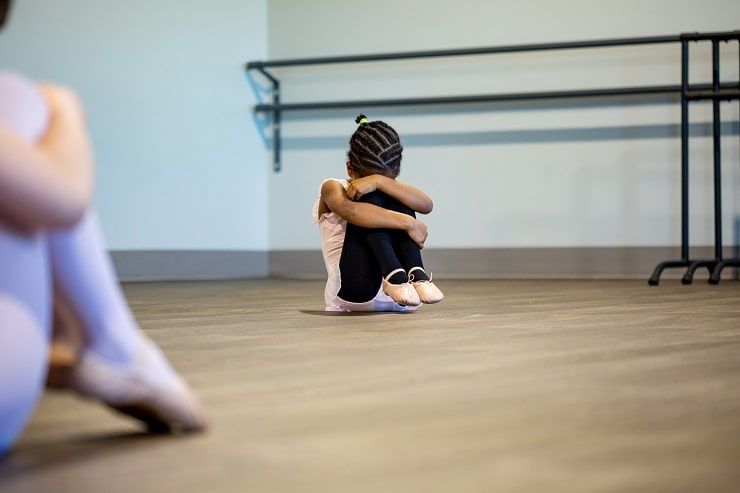As athletes and performers, competing in high-pressure environments is a part of our journey. The excitement and anticipation of competition can be invigorating, but it can also bring along stress and performance anxiety. To truly excel in our respective fields, it is essential to learn how to manage stress during competition effectively. By developing strategies and techniques to navigate the challenges that arise, we can optimize our performance and unlock our full potential. In this article, we will explore actionable steps and valuable insights to help you manage stress during competition, allowing you to perform at your best when it matters most.
The Multidimensional Nature of Stress
The multidimensional nature of stress and its division into cognitive, physical, genetically predisposed (personality) and state-relevant (contest or workout) enables us to perceive and deal with several of its aspects, intending to manage and maximize the performance of the athlete.
The presence of anxiety that occurs at the beginning of a contest is considered highly influential by many athletes.
If the athlete believes that he cannot control the stress he feels before the contest then this will negatively affect his performance. This notion inhibits any effort made. Conversely, if the athlete feels that he can control the symptoms of stress and use them to his benefit, then stress is interpreted as a sign of readiness to compete and it works to our advantage.
When the brain becomes aware that a situation is dangerous, then the body starts secreting hormones such as adrenaline, noradrenaline and cortisol which stimulate the body and prepare it to deal with the dangerous situation.
Understanding and Managing Competition Anxiety
The research data indicate that several days before the competition positive (sign of confidence) or negative (stress mark) thoughts start occurring in the minds of athletes.
However, the body still shows no signs of anxiety (tremors, fast beating rate, sweating, stomach pain, etc.). Thus, cognitive stress can be present at high levels even several days before the contest and remains stable as the contest date approaches.
Physical Stress and Its Impact
On the other hand, the physical stress is low several days before the contest and it increases as the day of the contest approaches. It reaches its climax just a few minutes before the beginning of the contest.
When it begins, the physical stress levels fall rapidly while the cognitive stress fluctuates.
Factors Triggering Cognitive Stress
- Fear and doubt about the outcome of the competition
- Personality traits (anxiety personality type)
- Fear of negative social evaluation of people considered significant
- The overestimation of perceived risks
- Depreciation of skills
- Fear of injury
- Poor preparation
- Perfectionism and
- The change in routine (e.g. delayed time of contest)
are the most important factors that trigger cognitive stress and consequently increase levels of stress before the contest.
Optimizing Stress Levels for Performance
What you need to bear in mind is that the optimal level of stress differs from athlete to athlete. Moreover, the ideal level of anxiety can be accomplished through psychological techniques. The determination of the ideal level becomes either direct or in retrospect (withdrawal method).
Many athletes believe that not discussing what they think (denial), resorting to sedative substances or increasing levels of eating properly are ways of facing anxiety before the competition.
What is certain is that the previous tactics eventually bring on higher levels of doubt, fear and stress to the athlete.
Effective Techniques to Address Competition Stress
- Check the conditions, situations and thoughts that cause stress.
- Each time before each competition you must set realistic, achievable, specific, positive and measurable goals based on the results you have during your training.
- Think about what you must do correctly and that you can manage because you have worked and trained on this basis
- Organize alternative plans for the contest. This will create calmness and confidence that you have thought through anything that might go wrong and that you know how to deal with it.
- Keep records of your training process and note down your progress so you can boost your confidence.
- Use relaxation techniques and proper breathing. Create a safe place for you to relax, and decorate it with warm lights, and fresh flowers. Get fresh flowers online.
The Role of Sports Psychology in Stress Management
Stress is something that affects athletes either positively or negatively. Sports psychology has the tools and techniques that help manage stress attacks, to maximize performance.
Cognitive restructuring, rationalization of cognitive distortions, changing negative thoughts into positive ones, and learning techniques for stress management is the assistance offered by the expert scientist to the athlete to have the desired effect.
Continuously Managing Competition Stress for Peak Performance
Remember, managing stress is a continuous process that requires practice and self-awareness. By incorporating these strategies into your competition preparation routine, you can develop resilience and perform at your best even under challenging circumstances. Prioritize self-care, maintain a positive mindset, and seek support when needed to effectively manage stress and unlock your full potential in every competition.







